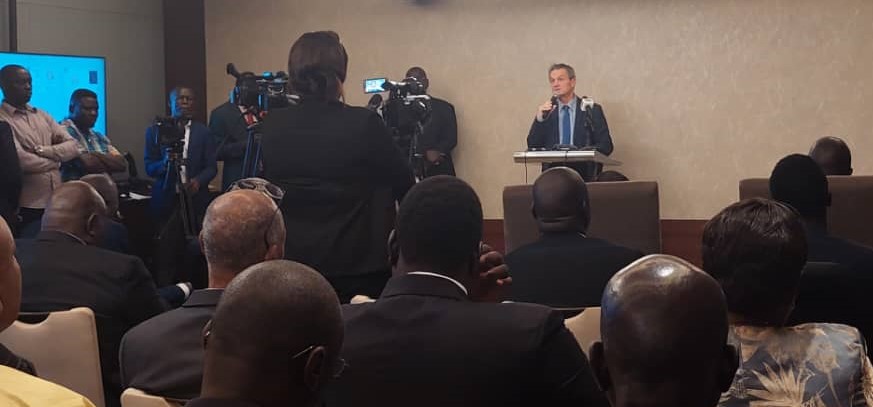A section of journalists has expressed disappointment after they were locked out as the Ministry of Justice and Constitutional Affairs validated the report of the Judicial Reform Committee in Juba on Wednesday.
The event, which was attended by First Vice-President Dr Riek Machar, Vice-President for Economic Cluster, Dr James Wani Igga, and Abdelbaggi Akol, the Vice-President for Service Cluster and other ministers, was conducted in a small hall at the Radisson Blu, which made it hard to accommodate all the journalists.
Patrica Ibasi, who was among those prevented from covering the event, told Radio Tamazuj that it was not right for the media to be invited and later sent out.
“I feel very frustrated as a journalist because they knew that they needed the media but decided to send them out yet they were invited,” she said.
The security personnel together with the organizers told journalists to leave, citing lack of enough space. However, some like Ibasi felt that it was a deliberate move to lock the public out of crucial information on judicial reforms.
Ibasi said the media should have been given priority over the security personnel.
“If the space is not enough, they should allow the media and leave other people outside,” she said.
Another journalist who spoke on condition of anonymity said they were disappointed that even after receiving the official invite, they were not allowed entry.
“We were invited but when the Vice-President came, we were asked to go out. The reason they gave is lack of space,” he said, adding that it would have been good for journalists to cover the event while standing.
Another journalist raised concern over whether that was an attempt to block the public from accessing information concerning judicial reforms.
“I feel we’re not valued because we’re the eyes of the people and we were not allowed in. Are they trying to stop the people of South Sudan from knowing this information?” she asked.
The National Press Club (NPC) Executive Director, James Ochaya, described the move as a violation of the media freedom.
“I came to see the validation workshop for the judiciary reform committee and of course I came in the capacity of the media advocacy group, but I saw all the journalists outside in a shock,” Ochaya said.
Blocking journalists from covering a very important function like the judiciary reform report shows disrespect for the press freedom and access to information, he added.
Ochaya said the issue of the judiciary reform is crucial and citizens were eagerly waiting to know the recommendations.
“This is a very important event that the public needs to know about because access to justice is one thing that everybody is learning about,” he said.




